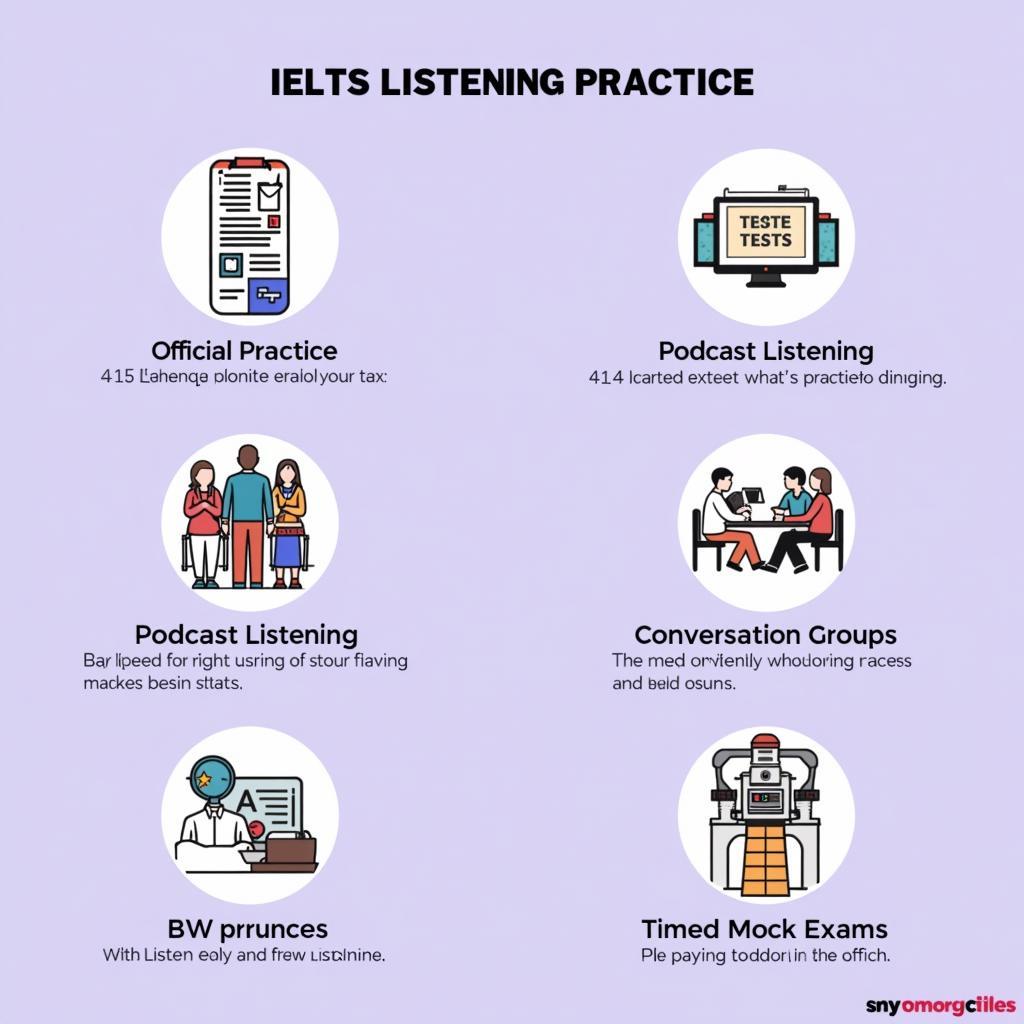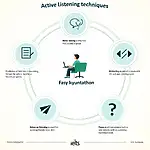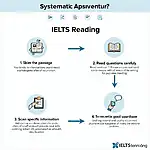Are you struggling with the IELTS Listening test? You’re not alone. Many test-takers find this section challenging, especially when it comes to providing clear and accurate answers. In this comprehensive guide, we’ll explore effective strategies for improving clarity in listening answers, helping you boost your IELTS score and confidence.
Understanding the IELTS Listening Test
Before diving into specific tips, it’s crucial to understand the structure and requirements of the IELTS Listening test. This section consists of four parts, with a total of 40 questions. You’ll hear various recordings, including conversations and monologues, and you’ll need to answer questions based on what you hear.
One of the biggest challenges in improving listening comprehension overall is maintaining focus throughout the entire test. Let’s explore some strategies to help you overcome this hurdle and improve your performance.
Key Strategies for Improving Clarity in Listening Answers
1. Develop Strong Prediction Skills
Prediction is a powerful tool in IELTS Listening. Before each section begins, take a moment to:
- Read the questions carefully
- Underline key words
- Anticipate the type of information you’ll need to listen for
By doing this, you’re priming your brain to focus on specific details, making it easier to catch the relevant information when you hear it.
2. Master the Art of Note-Taking
Effective note-taking is crucial for improving clarity in your listening answers. Here are some tips:
- Use abbreviations and symbols
- Focus on key information (names, numbers, dates)
- Organize your notes in a logical manner
Remember, your notes are just a tool to help you answer the questions accurately. They don’t need to be perfect or complete sentences.
3. Practice Active Listening
Active listening involves fully concentrating on what you’re hearing. To improve this skill:
- Listen for specific details as well as overall meaning
- Pay attention to tone and emphasis
- Practice with a variety of accents and speaking speeds
Dr. Sarah Thompson, an experienced IELTS examiner, emphasizes:
“Active listening is not just about hearing words, but understanding the context and nuances. It’s a skill that improves with consistent practice and can significantly enhance your ability to provide clear, accurate answers in the IELTS Listening test.”
4. Improve Your Vocabulary
A strong vocabulary can greatly enhance your ability to understand and respond to IELTS Listening questions. To expand your vocabulary:
- Learn common IELTS topics and related terms
- Study synonyms and paraphrases
- Expose yourself to a variety of English-language media
5. Manage Your Time Effectively
Time management is crucial in avoiding confusion in IELTS listening answer sheets. Here’s how to make the most of your time:
- Read the questions before the audio starts
- Write your answers as you listen
- Use the time between sections to review and prepare for the next part
Remember, you have a short time at the end to transfer your answers to the answer sheet. Use this time wisely to ensure your responses are clear and legible.
Specific Techniques for Different Question Types
Different question types in IELTS Listening require different approaches. Let’s explore some techniques for common question types:
Multiple Choice Questions
- Read all options carefully before listening
- Eliminate obviously incorrect answers
- Be aware of distractors (information mentioned but not correct)
Matching Questions
Answering listening matching questions can be tricky. To improve your performance:
- Quickly scan all options before the audio begins
- Listen for key words or phrases that match the options
- Cross off options as you use them to avoid repetition
Fill-in-the-Blank Questions
For these questions:
- Pay attention to word limits
- Listen for exact words or numbers
- Be mindful of spelling, especially for names and technical terms
 IELTS Listening Fill-in-the-Blank Strategies
IELTS Listening Fill-in-the-Blank Strategies
Overcoming Common Challenges
Even with these strategies, you may face some common challenges in the IELTS Listening test. Let’s address a few and how to overcome them:
1. Dealing with Distractions
It’s easy to lose focus during long listening sections. To stay focused during long IELTS listening sections:
- Practice mindfulness techniques
- Take deep breaths between sections
- Visualize the scenario being described
2. Handling Unfamiliar Accents
IELTS Listening includes various English accents. To prepare:
- Listen to podcasts, news broadcasts, and videos from different English-speaking countries
- Pay attention to pronunciation patterns and regional vocabulary
3. Avoiding Overthinking
Avoiding overthinking listening answers is crucial for maintaining clarity. Remember:
- Trust your initial instincts
- Don’t second-guess yourself too much
- Move on if you’re unsure; you can always come back later if time allows
IELTS instructor John Davies advises:
“Many test-takers lose points not because they didn’t hear the correct answer, but because they overthought and changed their initially correct response. Trust your ears and your preparation.”
Practice Makes Perfect
Improving clarity in your IELTS Listening answers requires consistent practice. Here are some effective ways to practice:
- Use official IELTS practice materials
- Listen to English-language podcasts and news broadcasts daily
- Participate in English conversation groups
- Take timed practice tests to simulate exam conditions
Remember, progress may be gradual, but with dedication and the right strategies, you can significantly improve your IELTS Listening performance.
 Effective IELTS Listening Practice Methods
Effective IELTS Listening Practice Methods
Conclusion
Improving clarity in your IELTS Listening answers is a journey that requires patience, practice, and the right strategies. By implementing the tips and techniques discussed in this guide, you’ll be well on your way to achieving a higher score in the IELTS Listening test. Remember to focus on active listening, effective note-taking, and time management. With consistent practice and a positive mindset, you can overcome the challenges of the IELTS Listening test and achieve your desired score.
Frequently Asked Questions
1. How can I improve my concentration during the IELTS Listening test?
To improve concentration, practice active listening techniques, take short breaks between sections to refocus, and regularly practice with full-length listening tests to build stamina.
2. What should I do if I miss an answer during the test?
If you miss an answer, don’t panic. Make an educated guess if possible, but don’t spend too much time on it. Focus on the next question to avoid missing more information.
3. How important is spelling in the IELTS Listening test?
Spelling is crucial in the IELTS Listening test. Incorrect spelling, even if the answer is phonetically correct, will be marked wrong. Practice spelling commonly misspelled words and pay attention to British and American spelling differences.
4. Can I write in all capital letters on the answer sheet?
Yes, you can write your answers in all capital letters. This can be helpful if you’re concerned about your handwriting legibility. Just be consistent throughout your answer sheet.
5. How can I improve my ability to understand different accents?
Expose yourself to a variety of English accents through podcasts, movies, and TV shows from different English-speaking countries. Pay attention to pronunciation patterns and regional vocabulary differences.
6. Is it better to read the questions first or listen to the audio first?
It’s generally recommended to read the questions first. This allows you to know what information to listen for and helps you predict the content of the audio.
7. How can I manage my time effectively during the IELTS Listening test?
Practice with timed mock tests, learn to write your answers quickly while listening, and use the time between sections efficiently to prepare for the next part. Remember to leave some time at the end to transfer your answers to the answer sheet.


